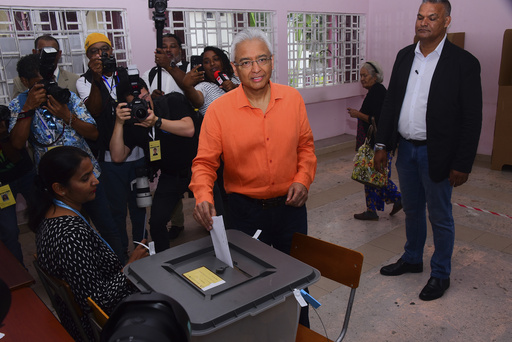JOHANNESBURG — Voters in Mauritius took to the polls on Sunday to elect a new Parliament, with the ruling party aiming to secure a second consecutive five-year term for Prime Minister Pravind Jugnauth. This election marks a key moment for one of Africa’s most enduring democracies.
Recently, Jugnauth’s administration faced backlash after implementing a ban on social media platforms, following a scandal involving wiretapped conversations that surfaced online. These recordings included discussions among politicians, activists, journalists, and business figures. While the ban was lifted after a short duration, it has sparked apprehension among opposition groups and civil society advocates.
Registered voters number more than 1 million as the nation participates in its 12th parliamentary election since gaining independence from British rule in 1968. In the 2019 elections, Jugnauth’s alliance, led by the center-left Militant Socialist Movement, won a significant parliamentary majority, solidifying his leadership. This time, he faces challenges from the opposition, notably the Alliance for Change, spearheaded by Navin Ramgoolam.
Situated approximately 2,000 kilometers (1,240 miles) off the eastern coast of Africa, Mauritius has established a thriving economy bolstered by sectors such as finance, tourism, and agriculture. The island is renowned for its stunning beaches and ranks second in Africa on the Human Development Index, only behind Seychelles. This index evaluates the quality of life of residents considering factors like life expectancy, educational access, and per capita income.
The World Bank has praised Mauritius as a “beacon of success for sub-Saharan Africa,” highlighting its remarkable economic progress following independence. Despite being classified as a high-income nation briefly in 2020, the COVID-19 pandemic significantly impacted its tourism industry.
In this election, Mauritians are casting their votes for 62 Parliamentary seats. The political party or coalition that secures the majority will have the authority to form the government and select the Prime Minister. An additional eight lawmakers will be appointed by the Electoral Supervisory Council.


